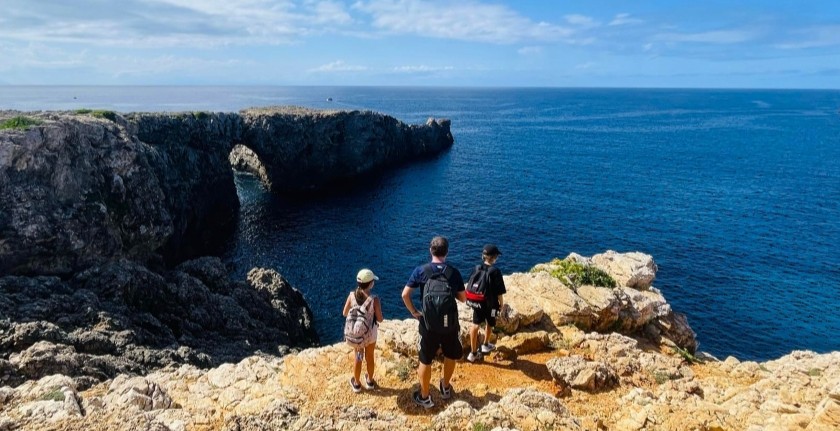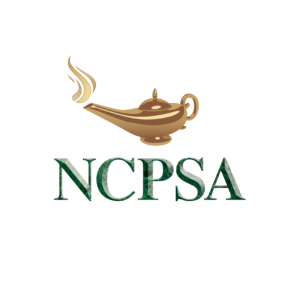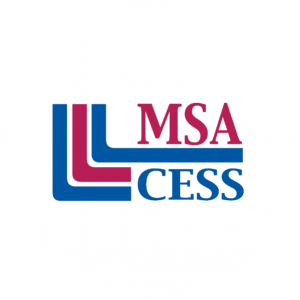What is it like to travel the world with your family, learning as you go? The best way to find out is to hear directly from a worldschooling family! We interviewed Paola, mother of Clonlara students Alejandro and Aitana, to learn more about their family’s experience.
Clonlara: What is your family’s worldschooling project about?
Paola: Our family’s worldschooling project stems from the desire to learn together through direct experience with the world. We’ve exchanged traditional classrooms for ever-changing landscapes: beaches, mountains, cities full of history, and towns with fascinating cultures. Essentially, our goal is for learning not to be confined to books but to include living, exploring, and connecting. We want our children to discover that learning is everywhere and that the world is their best teacher.
Of course, this isn’t always easy; organizing itineraries, coordinating formal learning with experiences, and balancing the needs of all family members sometimes puts us to the test. But every day reminds us why we chose this path.
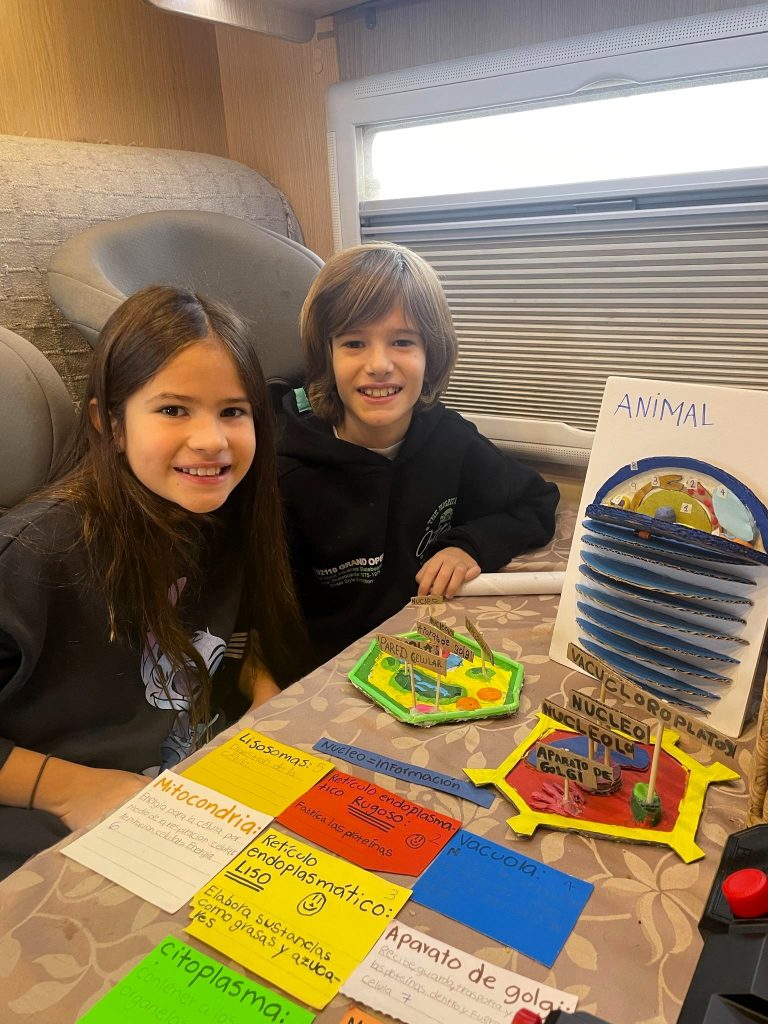
Clonlara: What travel opportunities has worldschooling provided so far?
Paola: Our journey has taken us from the cold seas of the Atlantic to the warm, turquoise waters of the Mediterranean, passing through towering mountains and valleys that seem straight out of a storybook. Each destination has opened doors to new learnings, but there is one experience in particular that deeply marked us: our stay in Ibiza.
We traveled across the island from end to end, exploring its hidden coves, golden beaches, and even its highest point. Between each swim and each ensaïmada (a local pastry), we researched Ibiza in all its aspects: its geography, history, culture, and gastronomy. But what surprised us the most was discovering Posidonia.
We knew a bit about it, but we didn’t realize its true importance. This plant (not an algae!) is a fundamental pillar of Mediterranean life—it produces more oxygen than trees, provides shelter and nurseries for millions of marine species, and is an indicator of clean and healthy waters. However, we have the bad habit of seeing it only as “those brown things that ruin the beach.”
We also fell into that trap. I won’t lie; arriving at a beautiful cove and finding the shore covered with dry Posidonia wasn’t our idea of a paradisiacal beach. But the more we learned, the more our perspective changed. We discovered that these natural barriers protect the beaches from erosion and strong storms. So, instead of complaining, we learned to accept them, understanding that they are part of the ecosystem. And if they really bothered us, we could simply walk a few meters more or choose another beach.
Ibiza, Mallorca, and Menorca are trying to balance Posidonia conservation with the comfort of tourism, but in the end, the responsibility is also ours. Understanding its importance is the first step toward protecting it. So now, when we see Posidonia on the sand, instead of sighing in frustration, we remember all it does for the sea… and we silently thank it.
If this piqued your curiosity, we invite you to learn more about Posidonia. Did you know that in ancient times, it was used as thermal insulation in houses and as a filling material for mattresses? Or that nowadays, new sustainable uses for it are being discovered, such as making eco-friendly paper and natural cosmetics? The more we learn about it, the more we realize that it is a treasure of the Mediterranean that deserves to be protected. So, the next time you see it on the beach, remember that it’s much more than “those annoying algae!”
Clonlara: What challenges have you encountered?
Paola: I won’t lie, there have been many setbacks! Living in a small space like a camper van can be a real test of patience. There are days when arguments arise over simple things, like who gets which corner to study or who left something in the middle of the hallway. But beyond the small daily friction, one of the biggest challenges has been finding the balance between exploring the world and following an academic routine.
At first, I was frustrated by not being able to do everything I had planned in one day. But little by little, I understood that if something doesn’t get done today, there will be time tomorrow. Learning to let go of that pressure has taken me some time, but it has been one of the best lessons that this lifestyle has given me.
I also discovered that each child has their own learning pace. Aitana is like a whirlwind: she finishes what we’re doing quickly and immediately comes up with new ideas, ready to put them into action. On the other hand, Alejandro is more methodical; he analyzes each step calmly and considers every detail before moving forward. And so the time goes… While one is already thinking about the next project, the other is still exploring each detail with patience. I used to try to make them both progress “at the same time,” but I realized that time is not the same for everyone, even though the clock keeps ticking its hours.
This journey has not only taught us geography and history but also to be more flexible, to trust the process, and above all, to enjoy the journey without the need to rush it. In the end, learning is not a race, but an adventure that is lived at its own pace.
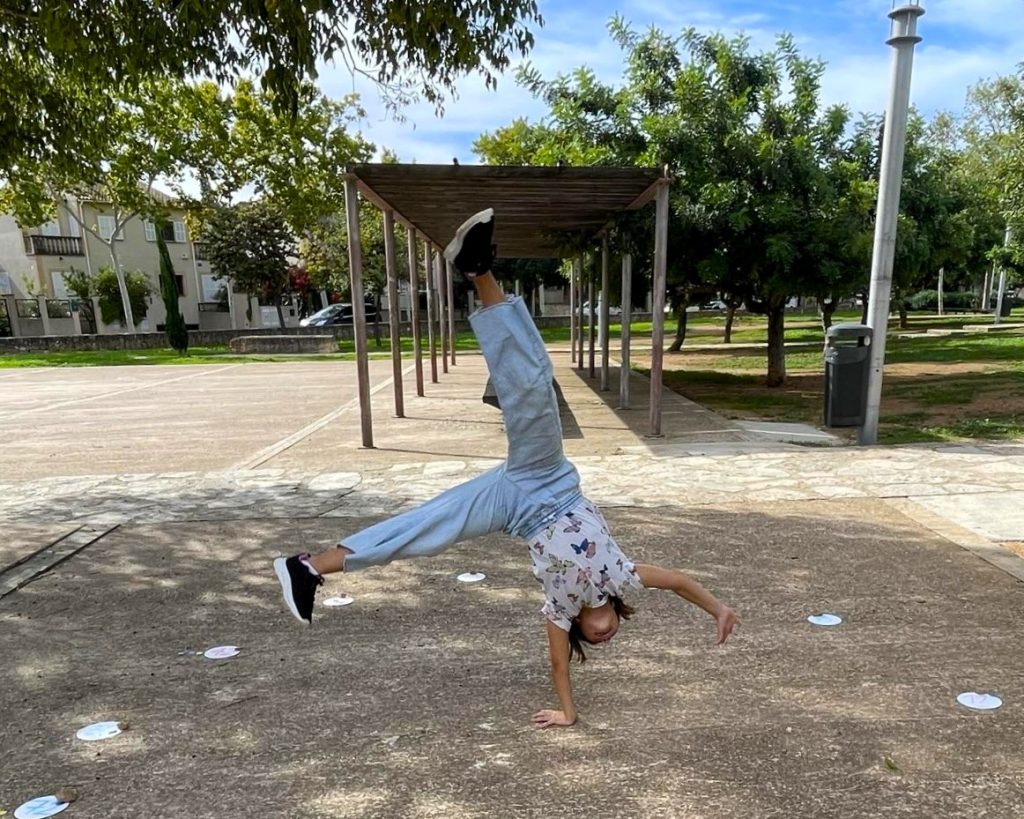
Clonlara: What is a day in your life like?
Paola: No two days are the same, and that’s part of the magic of our family project. Right now, Alejandro and Aitana start the day by reading in their beds for quite a while, simply because they enjoy it. At first, I found this hard to accept, because I had the idea that the most important thing was to get up and start “studying” immediately. But over time, I understood that this reading habit is actually one of our greatest achievements—the result of having cultivated a love for books in them. Reading is the central axis of our learning, so now I deeply appreciate that first part of the day.
After reading, we have breakfast together and spend the morning working on projects. Sometimes they are personal projects, ideas that come from their own curiosity, where I just observe without intervening. Other times, we work on integrative projects, which I guide, but always starting from their interests and connecting them with curricular content in a flexible way.
Later, we read again, this time out loud. It’s usually our book of the month, and the dynamic is simple but enriching: we read a chapter and then talk about it, sharing opinions, interpretations, key words, and reflections. These moments have become little family debates where each one contributes their point of view, and new ideas arise!
We try to follow a curriculum, but never in a rigid way. If a topic excites us, we allow ourselves to dive deeper. If something doesn’t resonate, we look for another way to approach it or simply move on to something else. Flexibility is one of the great advantages of our lifestyle.
In the afternoons, we go out to explore wherever we are: it could be a museum, a nature park, a market, or a simple walk along the beach. We especially enjoy routes through coves and mountains; sometimes we even do them in the morning if the weather is ideal. These explorations are, without a doubt, the ones that give us the most meaningful learnings.
When we’re in Madrid, where our family lives, our days are a bit more structured. There, the kids participate in extracurricular activities like acrobatics, rhythmic gymnastics, and ski lessons. They also consistently continue their online piano and guitar classes, no matter where we are.
Now, not everything is perfect. There are days when everything goes off track: fatigue catches up with us, the internet connection fails, or there’s simply a collective bad mood that complicates everything. And that’s okay. Those days remind us that it’s not about having a flawless routine, but about going with what life presents us, learning from it, and moving forward.
Clonlara: What meaningful learning experiences would you choose to share with other families?
Paola: If we had to choose one experience that has deeply marked us, it would undoubtedly be the decision to live differently. Choosing the path of worldschooling and making our camper van both a home and a school on wheels has been a challenge full of ups and downs. There are days when the space seems to shrink, when we miss the stability of a traditional house, or when uncertainty shakes us. But we have learned that everything in life has its pros and cons, and despite the challenges, this path has been—and continues to be—worth every kilometer traveled.
Traveling while learning has allowed us to connect with the world in a way we never imagined. It has taught us that it’s not enough to accumulate knowledge; what is truly transformative is relating to our surroundings, asking ourselves why and how things are, listening to other voices, and learning different ways of life. Each place we visit, each person we meet, each culture we interact with helps us nourish our being, expand our worldview, and understand that there isn’t just one way to live.
Academic learning is important; knowing concepts, methods, and theories helps us navigate society. But nourishing the self and connecting with our emotions, creativity, and adaptability is what truly makes us feel complete.
So, if you ever have the opportunity to travel, to step out of the routine, to get to know other ways of life and perspectives, do it. It doesn’t matter if it’s far or near, with or without children, for a few days or years. Every journey, every encounter with the unknown transforms us and reminds us that learning is not just in books, but in every corner of the world we choose to explore.
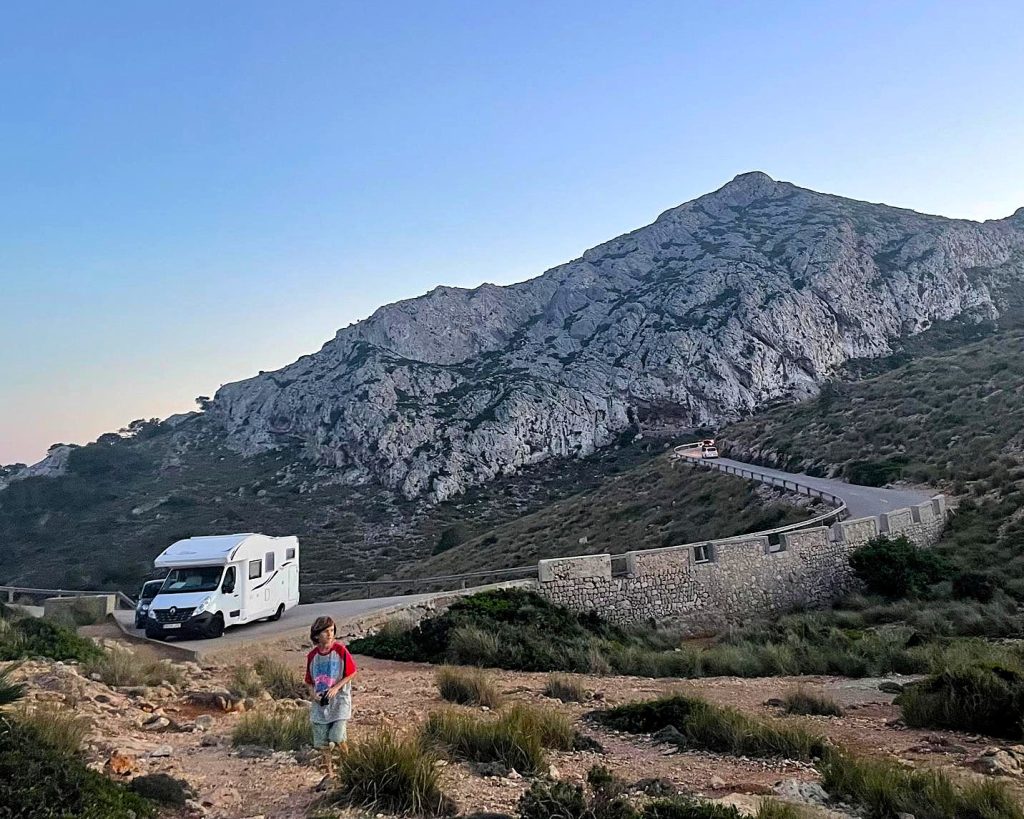
Clonlara: How has your journey with Clonlara been?
Paola: Our journey with Clonlara has undoubtedly been one of the best decisions in our choice to homeschool while traveling. When you choose a path different from the traditional one, it’s normal to have doubts and wonder if you’re really offering the best to your children. But Clonlara has been that support that reminds us we are not alone and that education can—and should—adapt to life, not the other way around.
Clonlara: What is your favorite aspect of being a Clonlara family?
Paola: What we value most about being a Clonlara family is the freedom with support. It’s not just about homeschooling, but having a backup that allows us to personalize learning without feeling disconnected from the educational system. They have offered us flexibility without losing structure, giving us tools to ensure our children are progressing.
Clonlara: How has Clonlara contributed to your family project?
Paola: In our case, traveling is part of our life and education, and Clonlara has been key to integrating everything we experience into our learning. From designing projects based on our experiences to helping us document our children’s academic growth, we’ve always felt that our way of learning is valid and enriching.
If anyone is considering a homeschooling path and looking for a community that supports, inspires, and facilitates this process without imposing limits on children’s creativity and curiosity, Clonlara is undoubtedly an option worth exploring.
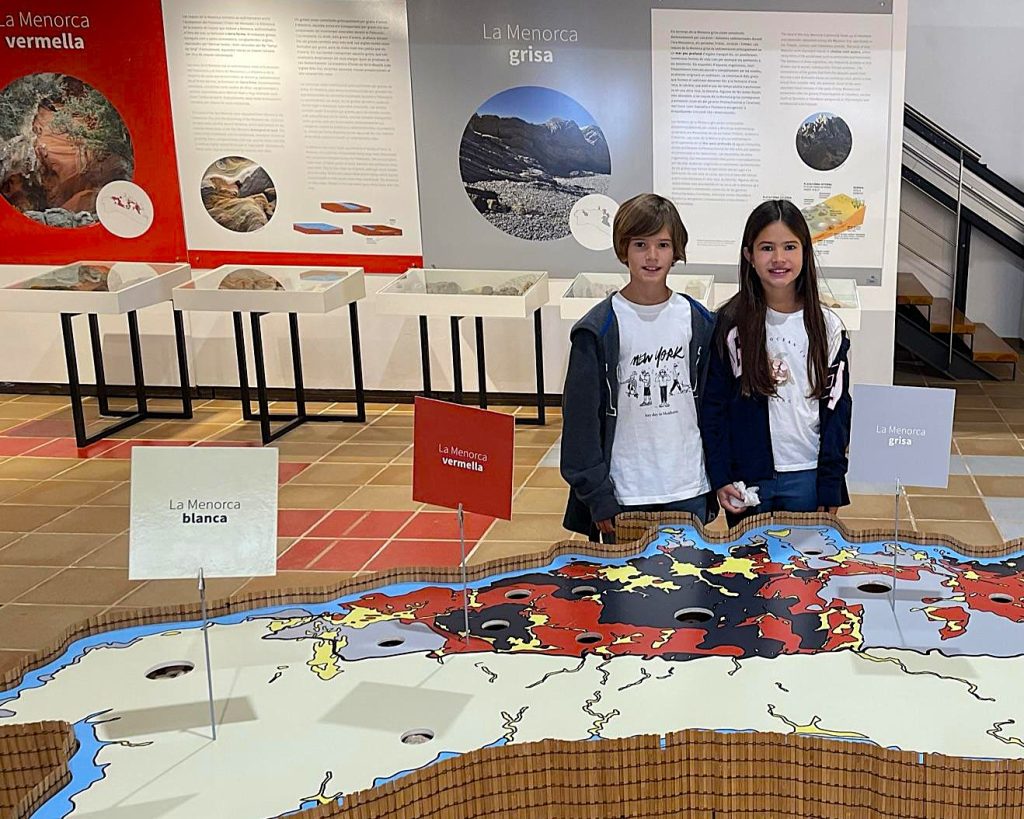
Clonlara: Is there anything else you would like to share with the Clonlara community?
Paola: Yes, we would like to share something we’ve learned on this journey: homeschooling is not perfect, and that’s okay. At first, it’s easy to imagine an idyllic homeschooling experience with children always motivated, fascinating projects, and structured days that flow smoothly. But the reality is that there are chaotic days, moments of doubt, and seasons when it feels like we’re not making progress. And yet, it remains one of the most valuable decisions we have made as a family.
Each child has their own rhythm, interests, and ways of learning. And each family has its own dynamic, level of structure, and teaching style. There is no one way to do homeschooling, and that’s what makes it so special. The important thing is to remember that we’re not replicating school at home, but creating an education that adapts to our lives, not the other way around.
If you’re just starting to homeschool, or if you ever doubt your path, we encourage you to trust the process. It’s not about covering everything in one day or following a curriculum to the letter. It’s about learning together, discovering what works and what doesn’t, allowing ourselves to make mistakes, and adjusting the course when needed.
And most importantly: homeschooling doesn’t mean doing everything alone. Having a community like Clonlara has helped us feel supported, share experiences, and realize that each family walks this path in their own way, but with the same purpose: to give our children an education that not only teaches them but transforms them.
So, to those considering this option or already on the path, we can only say: trust, enjoy the process, and remember that learning happens everywhere, even on the most chaotic days.
Thank you for sharing your family’s story with us, Paola! We know it will inspire others who want to integrate travel and school as a way of life.
We love hearing about our students’ experiences. If you would like to share your family’s story, please let us know! And stay tuned for more interviews…




